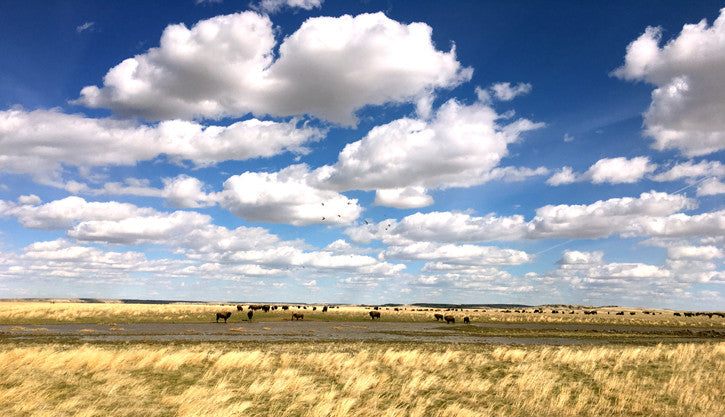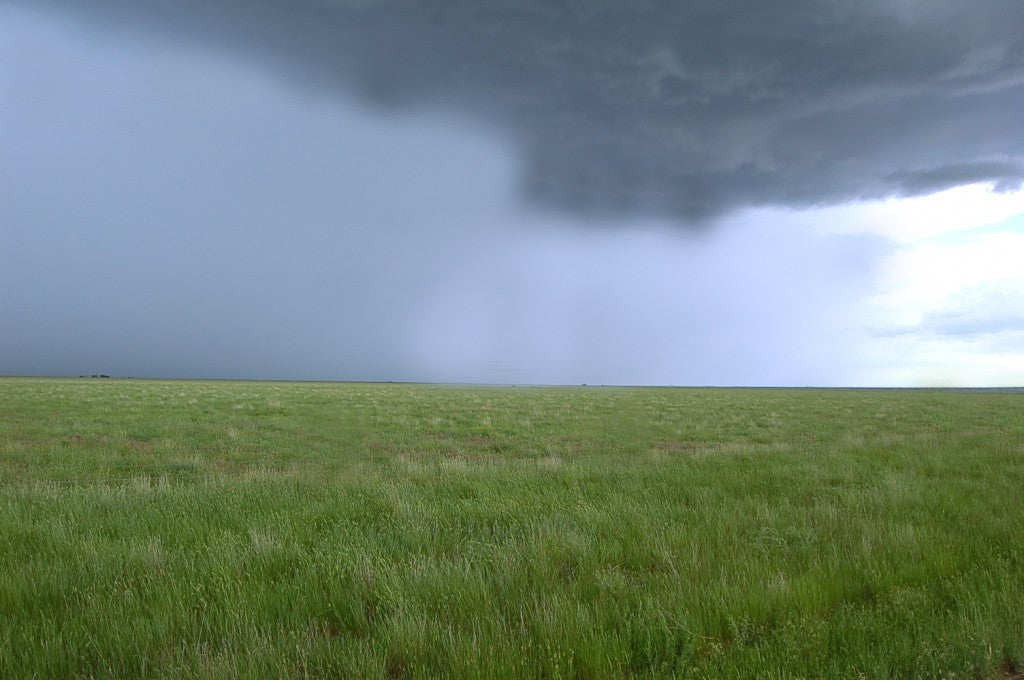As one travels the center of our country, the effort to conserve and restore the diversity and natural systems of the American Great Plains is evident. Conservation groups, government agencies, and individuals are hard at work on a thousand projects; from habitat restoration, to
But the “Big Open” is more than big. It is immense, and the systems that give it the power to lift the human spirit are complicated, indeed. In fact, when measured against the enormity of the Great Plains, the efforts to restore its vitality
It is hard to be optimistic about the chances for a meaningful and timely recovery of the Great Plains. With climate change clearly in progress, and the Plains predicted to get even drier, the chances for help, from a series of wet years, seems unlikely. With fossil fuel consumption showing no real signs of tapering off until it becomes a rare and expensive commodity; the human assault on the Great Plains seems destined to continue. National attitudes concerning our relationship to the land, show no widespread signs of turning away from headlong consumption. It is hard for me to imagine that we, as a society, have reached the peak of our mindless, arrogant binge of environmental abuse and are on the downhill slope toward a workable harmony with the natural systems of the Great Plains. It seems clear to me that, if things are ever to get better, we will have to suffer through a period of increased deterioration of the land that sustains us.

So what, you might ask, is the value of all those people
Aldo Leopold said, “The first rule of intelligent tinkering is to save all the pieces.” The intelligence of our tinkering on the Great Plains is in serious dispute, but the fact that we have tinkered with the connective tissue of the environment is a simple fact. It seems highly likely that, as with the population and fortunes of all species, an adjustment looms in the future for mankind. The ingenuity of humans that allowed their populations to exceed the carrying capacity of its range was not ingenuity at all. It was a stroke of luck called cheap oil – no more the

It would be easy to view all this as bad news for mankind, but no thinking person ever believed that population and prosperity, for any species, can increase forever. The great adjustment is not bad news – it is simply news. But there may be some good news in all this. Unlike the antelope, who are not capable of planning and so destined to destroying their habitat in the times following the boom years, there are a few humans: individuals, groups, and agencies, who have been “saving the pieces.” When the smoke of the adjustment clears, in fifty, or a hundred, or three hundred years, there may well be a forty-acre wetland with Pintails bringing off broods, there may be a garden of once pampered wild plants ready to break out onto the prairie again. There may be sections of prairie that were managed for the duration, and healthy enough to accept those plants. And there may be a little herd of free roaming buffalo ready to claim their birthright – to step through the crumbed fences and fill the void left by the deposed monarchs.
This article was first published in 2006.

27 comments
Thank you for a timely, well written article. Please post on FB and send to WH. Too many people, taking too much. Human over population and greed. Until we truly deal with that reality, the damage continues. Awareness and action of the masses needs to occur, one way or another.
I feel the intellect woven in a tightening weave with deep love of the plains. I agree and do believe Dan is right that although we can’t save it or maintain the vast, beautiful plains, nor the amazing balance of estuary and coastal marsh areas, my deep love and concern. Yet, as Aldo Leopold said we must save the peices; we must when the time is right, be able to nurture a rebirth or reforming of these lands after the rebalancing occurs.
Until the end of time, we need to try, to educate our youth and our leaders of the beauty and grand balance of these lands and why it matters to us as the human species.
May God bless us all in these efforts.
I feel the intellect woven in a tightening weave with deep love of the plains. I agree and do believe Dan is right that although we can’t save it or maintain the vast, beautiful plains, nor the amazing balance of estuary and coastal marsh areas, my deep love and concern. Yet, as Aldo Leopold said we must save the peices; we must when the time is right, be able to nurture a rebirth or reforming of these lands after the rebalancing occurs.
Until the end of time, we need to try, to educate our youth and our leaders of the beauty and grand balance of these lands and why it matters to us as the human species.
May God bless us all in these efforts.
Thank you.
Thank you for the reminder, Dan.
I just read your book, which friends had given us, and promptly bought some honest meet from you. The burgers tasted great last night. Thank you for your efforts to restore some of the North American prairie Dan. One thing I came away with after reading your book was a new appreciation for the prairie. I have always thought of mountains and rivers and forest as that which needs preservation, but now next time I drive across South Dakota, Nebraska, North Dakota, Kansas, Wyoming, Montana, I’ll be trying to imagine what it once was before we killed all of the wildlife and criss-crossed the land with roads, fence, and power lines, and ripped out the deep grass roots to replace it with a homogeneous crop of subsidized corn or wheat or what-have-you requiring “poisonous chemicals” to maintain high yield. Or for the raising of cattle, which destroys a self-sustaining and healthy eco-system. Is there another way to do this? You have asked this hard question, and tried to answer it with your life’s work. We need more of you. Thank you.
Do continue to save the pieces, Dan. Your convictions and your great efforts are of the utmost importance for the future. I hope that we will have the opportunity to meet you when I come to visit your ranch in June with a group of my retired French people who are learning/improving their English. Is tourism a part of the solution or a part of the problem? I don’t know, but I do know it will be a great pleasure for all of us to discover this beautiful land and perhaps you can share with us your ideas as to how each of us can in some way be a part of the solution.
Thank you for the recognition of the small communities that are “….saving all the pieces”.
I know these communities are influencing others and teaching others what they are discovering about the earth and her ecosystems.
Never doubt that a small group of thoughtful committed citizens can change the world; indeed it’s the only thing that ever has.
~Margaret Mead
And so it is that eleven years later, this message still needs to heard….again. And eleven years after this and eleven years after that.
A wonderful essay, Dan. Watching a recent episode of The American Experience about Rachael Carson, reminded me how much progress we’ve made and the power we all have to do our part in making a difference. I’m still very hopeful.
It may be too late to save this planet, especially, with all of the greedy Trump’s and Koch Brothers that want to continually Rape this planet. It’s a real shame.
Amen it is so sad that man has destroyed so much in out world, now we must put back the pieces again